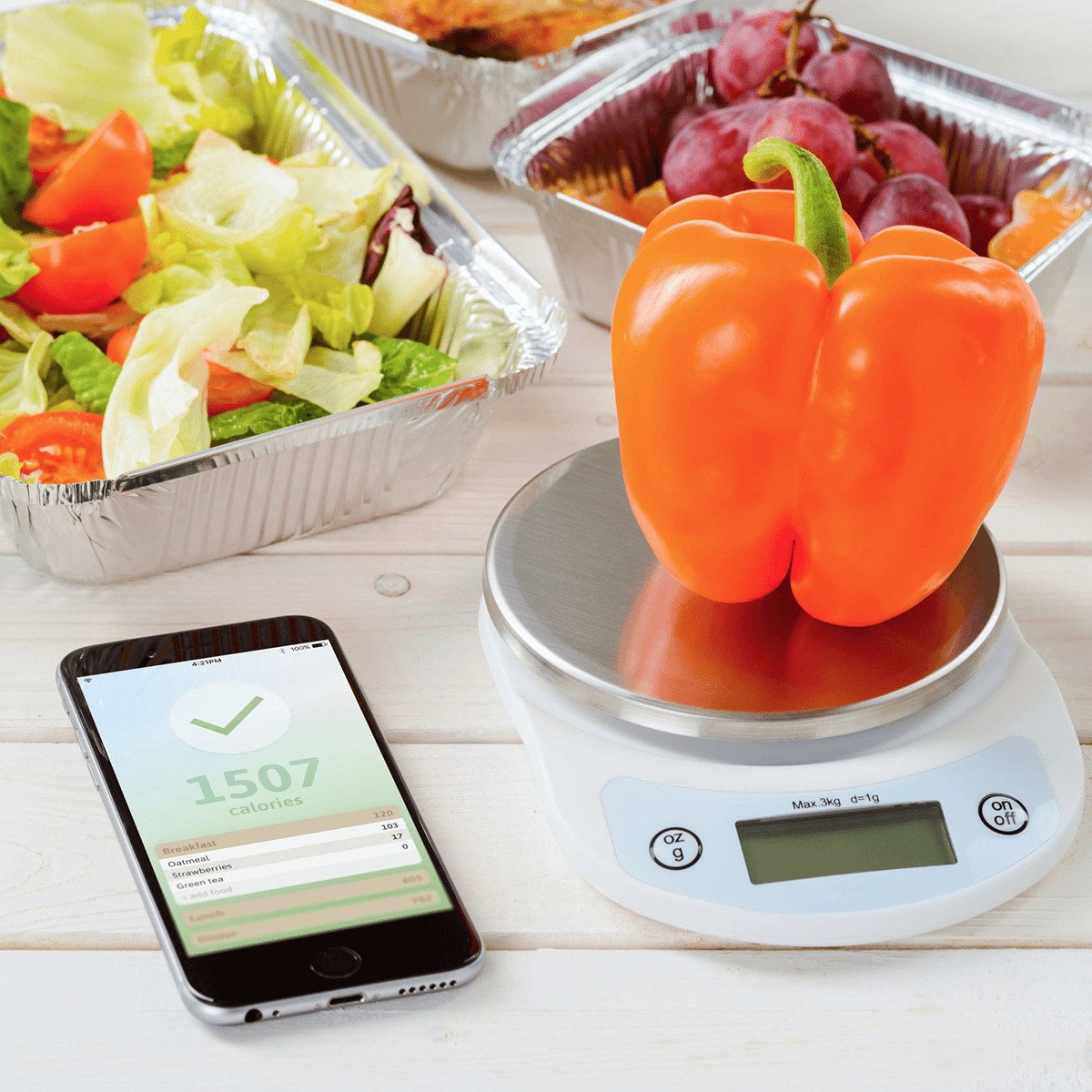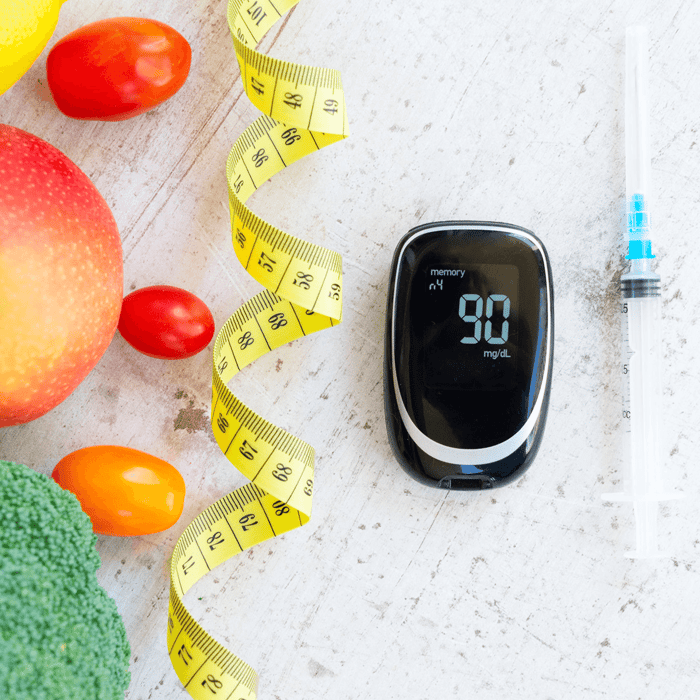Essential Guide to Bariatric Calorie Intake for Effective Weight Loss - Celebrate
Lifestyle
September 1st, 2021

Bariatric surgery is a life-saving procedure, from which you will lose weight, reduce your co-morbidities, and look and feel better. But in order to be successful long-term, you will have to change your diet. It sounds easy enough, but is it? Change is difficult, especially for those who have spent much of their lives without a healthy relationship with food. Having goals and a plan in place is essential to managing this change.
Roux-en-Y Gastric Bypass (RYGB), Sleeve Gastrectomy (SG), and Biliopancreatic Diversion with Duodenal Switch (BPD/DS) surgeries alter how the stomach handles food, creating restriction, malabsorption, or both, which means you will ingest less calories over time. After surgery, you will be given a post-surgery meal plan, and you will slowly increase your food intake as you progress through the various diet stages. The bariatric diet is a critical nutritional plan for individuals who have undergone bariatric surgery, emphasizing the types of food and caloric intake required before and after the procedure.
Because the stomach is now smaller, it will take less calories for you to feel full. However, there is still a lot of confusion around post-op eating guidelines and how many calories are needed after gastric sleeve and bariatric surgery. Dietary guidelines and nutritional needs post-surgery, such as those for gastric bypass surgery and gastric sleeve surgery, are essential to ensure successful recovery and weight loss. Read on for the answer!
How Many Calories Will I Need to Consume After Bariatric Surgery?
There is a lot of information regarding how much and what you should eat after bariatric surgery. However, the specific number of calories to take in on a daily basis is not that simple. We do not yet have a validated predictive equation for estimating calorie requirements for patients after bariatric surgery. Therefore, any calorie targets you have been given or read about are not based on robust scientific evidence. Also, your calorie intake will change as the months go on after surgery. Portion sizes will begin to increase; this is expected and perfectly normal. You should be more focused on the quality of the foods you are choosing than the quantity. It's important to identify your new hunger cues, as well as your satiety cues. The focus should not be on counting the specific number of calories you consume, but on promoting a lifelong change, not just another unsustainable diet. However, monitoring your daily caloric intake is crucial in the context of post-operative dietary guidelines for gastric bypass surgery patients to ensure it is low enough to facilitate rapid weight loss while meeting individual nutritional needs.
Bariatric surgery reduces the amount of food you can consume. However, it does not have an effect on the nutritional quality of the food you eat. Counting calories is not the most helpful, since the lowest calorie choices are not always the most nutritious. Because the quantity is restricted, we need to focus on making sure the quality is high. If you must have a calorie goal range to keep you on track, we have you covered. It is also important to have specialized dietary plans and resources for bariatric patients to ensure they receive the necessary nutrients.
Typical calorie intake for the first week after surgery is approximately 400 kcal/day. As previously mentioned, you will be provided with a post-surgery meal plan which will likely be entirely liquid to aid in the gastrointestinal healing process. Your diet will advance, and you will progress from pureed to soft foods before resuming a solid food diet. By weeks 3-4, your calorie range will be 600-800 kcal/day, and you should aim for 60-80 grams of protein per day. Several months after surgery, patients should consume 1,200-1,500 kcal/day, still focusing on 60-80 grams of protein per day. Most patients will be consuming approximately 1,500 to 1,800 kcal/day 6 months post-operatively and long-term. As you can see, your calorie intake will increase slightly as well. Additionally, a very low calorie diet is often necessary for individuals preparing for bariatric surgery, typically involving 450-700 calories per day under medical supervision to facilitate weight loss and improve surgical outcomes.
Listed below are helpful hints to keep you on track:
- Avoid snacking/grazing. Having a snack between meals when you are hungry is perfectly fine, but snacking or eating throughout the day due to boredom, tiredness, etc. may hinder your results and keep you from losing weight.
- Eat protein first. Aim to consume at least 60 grams of protein each day. Since you are eating less food, you will need to ensure you get enough protein. Try including a good source of protein with each meal (eggs, lean meats, poultry, fish, beans, or low-fat dairy foods).
- Eat slowly. Each meal should last 20-30 minutes. If you eat too fast, you may eat too much before you realize you're full. This can lead to nausea, vomiting, and/or pain or pressure in the shoulder or upper chest.
- Eat small amounts. You should be eating no more than one cup of food per meal. If you are eating larger portions, you risk gaining weight and stretching out your pouch over time. Using a food scale to weigh your food will help.
- Slowly introduce new foods. Try adding one new food at a time, so you can determine which foods you can and cannot handle. Certain foods may cause problems for you after bariatric surgery, though this will vary from person to person. Your dietitian can help if you have questions about specific foods.
- Avoid sugar and fat. When eating a well-balanced diet with lean proteins, vegetables, low-fat dairy products, whole grains and fruit, you won't have room for the less nutrient-dense foods. Try following the 10 by 10 rule. Eat foods that have less than 10 grams of fat and 10 grams of sugar per serving.
And there you have it. This is your guide to calorie goals and eating guidelines after bariatric surgery. Although it may seem confusing at first, you will be absolutely fine as long as you follow this and listen to what your healthcare professionals advise. Please remember these are just guidelines. To achieve success on your wellness journey, you must find the guidelines that work best for you and your long-term success. Everyone's journey is different, and your guidelines may not be the same as someone else's.
References:
- Jeffrey I. Mechanick et al. / Surgery for Obesity and Related Diseases 16 (2020) 175–247
- Sherf Dagan S, Goldenshluger A, Globus I, et al. Nutritional recommendations for adult bariatric surgery patients: clinical practice. Adv Nutr 2017;15:382–94.
- Lim HS, Kim YJ, Lee J, Yoon SJ, Lee B. Establishment of Adequate Nutrient Intake Criteria to Achieve Target Weight Loss in Patients Undergoing Bariatric Surgery. Nutrients. 2020;12(6):1774. Published 2020 Jun 14. doi:10.3390/nu12061774
- Kanerva N, Larsson I, Peltonen M, Lindroos AK, Carlsson LM. Changes in total energy intake and macronutrient composition after bariatric surgery predict long-term weight outcome: findings from the Swedish Obese Subjects (SOS) study. Am J Clin Nutr. 2017;106(1):136-145. doi:10.3945/ajcn.116.149112
- Vanoh D, Shahar S, Mahmood NR. Association between nutrient adequacy and psychosocial factors with overall rate of weight loss after bariatric surgery. Asia Pac J Clin Nutr. 2015;24(4):610-619. doi:10.6133/apjcn.2015.24.4.11
Bariatric Protein Bars, 7 Count

$14.99
Celebrate's bariatric Protein Bars provide 15 g of high-quality protein. Each bar also contains 7-11 g of fiber, has a calorie range of 130-160, and a net carbohydrate range between 14-17 g. Bars are available in 6 delicious flavors (Chocolate… read more
Celebrate’s bariatric Protein Bars provide 12-15 g of high-quality protein, which is essential for preserving muscle tissue after weight loss surgery. Each bar also contains fiber, has a calorie range of 160-170, and a net carbohydrate range between 5-14 g. These bars are available in 6 flavors (Chocolate Crisp, Fluffy Nutter, Choco-Vanilla, Fluffy Berry, Salted Toffee Pretzel, and Fluffy Lemon).
For individuals who have undergone or are considering weight loss surgery, these protein bars offer crucial dietary support and information to aid in recovery and overall health.



